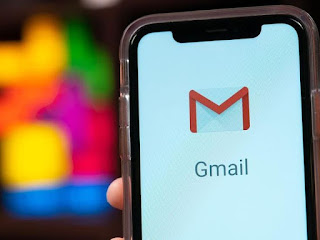How to prevent your Gmail account from being deleted by the Google Team in December

How to prevent your Gmail account from being deleted by the Google Team in December
It's important to protect your Gmail account from being
deleted by Google, and following their rules and regulations is one way to do
this. Make sure the information you read about this topic stresses how
important it is to abide by Google's terms of service. Seek guidance on
adhering to copyright laws, keeping your mailbox clutter-free, and avoiding
spamming activities. The post should also emphasize how important it is to
double-check email attachments, stay away from dubious links, and use safe,
one-of-a-kind passwords. Gaining knowledge of and adhering to these
guidelines—which are provided in reliable articles—will help protect your Gmail
account and keep Google from deleting it.
In the current digital era, email accounts frequently serve
as the entry point to our online personas and include private and sensitive
business data. One of the most widely used email providers, Gmail, offers a
strong range of security tools to keep your account safe. Still, it's
imperative that you take further precautions to strengthen the security of your
Gmail account. We'll look at some doable advice and recommended practices in
this post to strengthen the security of your Gmail account.
- Turn on
Two-Factor Authentication (2FA): Setting up 2FA for your Gmail
account is the first and most important step. When you log in from an
unknown device, two-factor authentication adds an extra degree of
protection by asking you to provide a one-time code that is emailed to
your mobile device or created by an app. As a result, it is far more
difficult for unauthorized individuals to access your account.
- Update Your
Password Frequently: Make sure your password is
strong and distinct by changing it on a regular basis. Don't include
information that may be guessed, such as names, birthdays, or everyday
words. Usually, a combination of capital and lowercase letters, digits,
and special characters make up a secure password. To manage complicated
passwords, use a password manager.
- Monitor Account
Activity: Check your Gmail settings on a regular basis to see what has been
going on with your account. It might assist you in identifying any odd
sign-ins or questionable activity. If you notice anything unusual, you may
use Gmail to quickly log out of all other sessions.
- Exercise
Caution When Clicking on Links and Emails: Phishing
attempts are frequent in the online world. When opening emails from
senders you don't recognize or clicking on links, proceed with caution,
particularly if they want personal information or urge you to download
anything. Make sure the material is authentic and the sender's email
address is correct at all times.
- Employ robust
security questions: These provide an additional
degree of safety for your account. Select questions whose responses are
unique to you and difficult to predict. Refrain from using information
that is easily obtainable, such as the name of your pet or your mother's
maiden name.
- Verify App
Permissions: Examine the services and apps from outside sources that can access
your Gmail account. Take away your access to any applications or services
that you don't use or believe in. When giving permissions, use caution and
only provide access to apps that come from reliable sources.
- Protect Your
Devices: Make sure the gadgets you use to access Gmail are safe. On your
mobile devices, set up screen lock, PIN, or biometric authentication.
Update your operating systems and programs on a regular basis to fix
security flaws.
- Educate
yourself: Keep up with the most recent security risks and recommended
procedures for internet safety. You should make use of the security alerts
and useful information that Google provides.
- Regularly
backup your data, including essential documents and emails. This
guarantees that you won't lose important data even in the event that your
account is hacked.
You can greatly increase the security of your Gmail account
by adhering to these recommended practices and exercising caution. Recall that
keeping a safe online presence and protecting your sensitive information
require a proactive attitude toward security.
Post a Comment